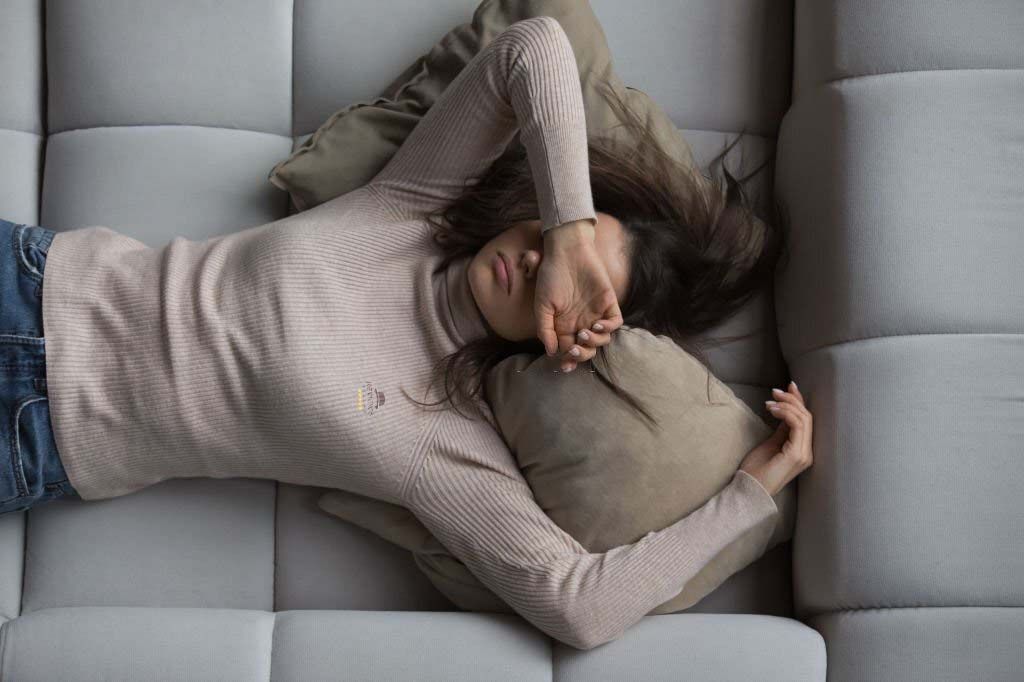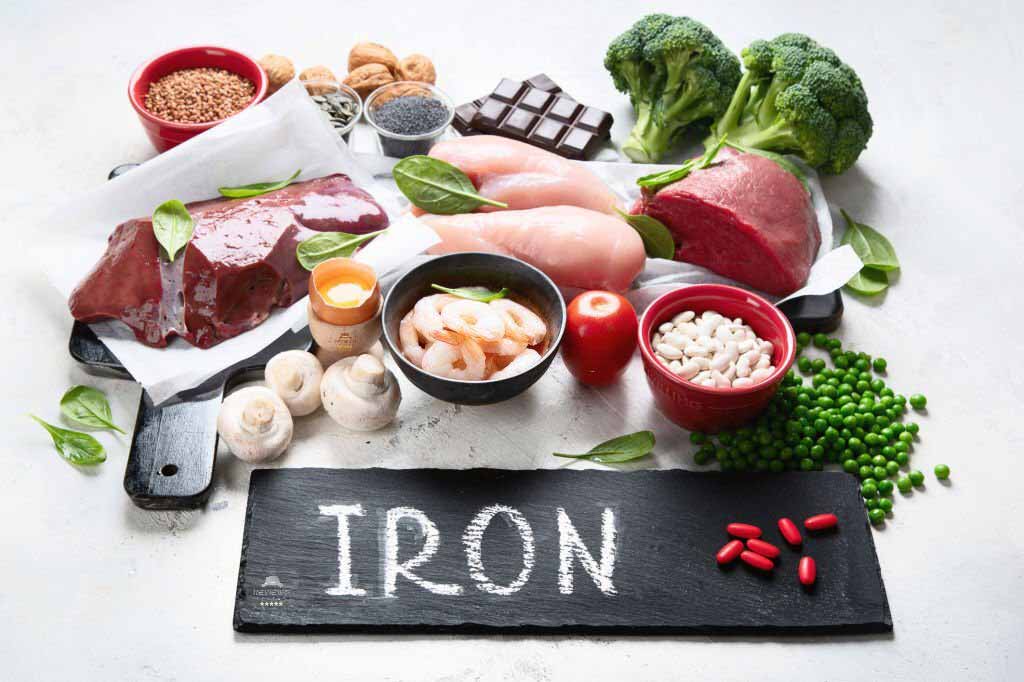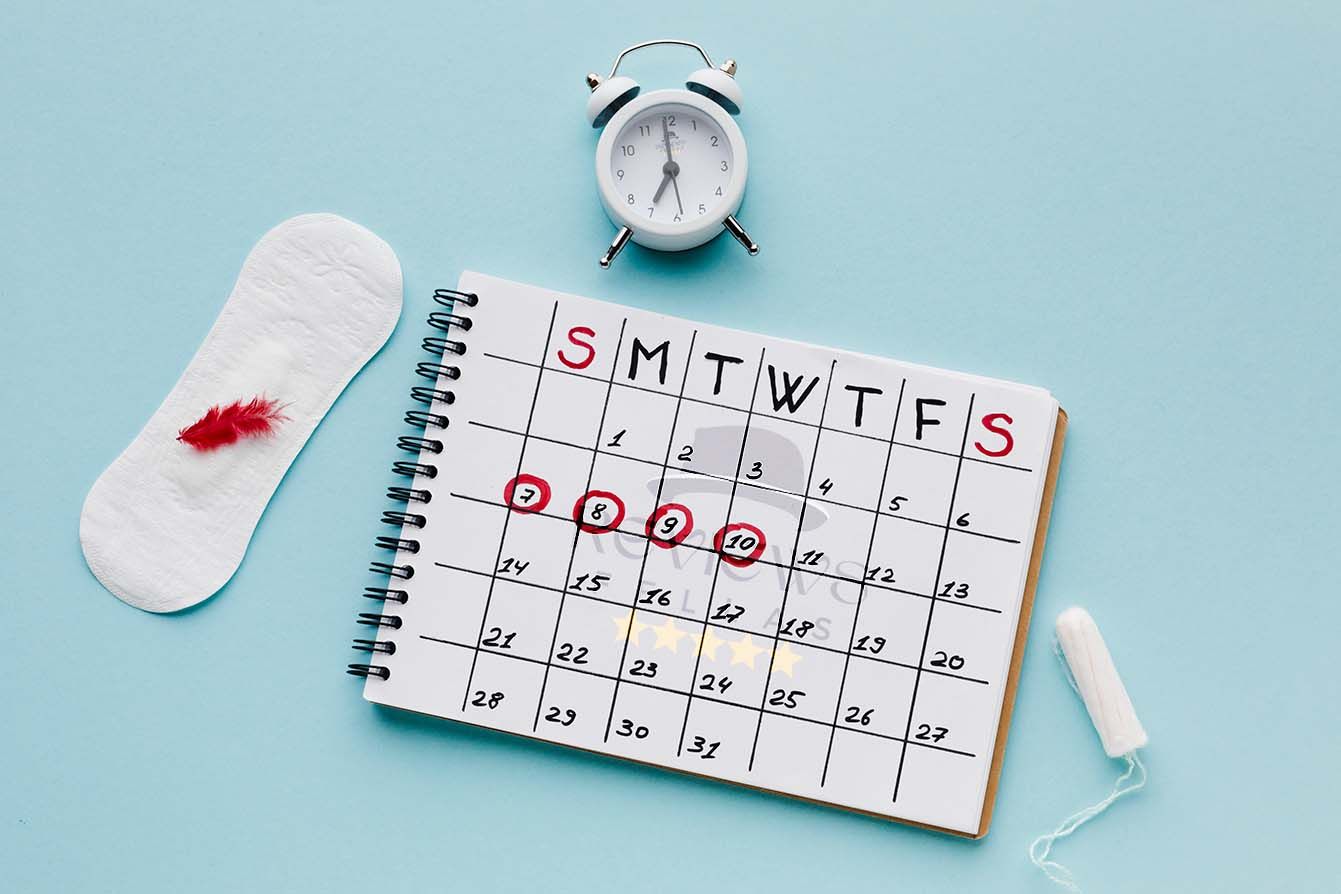This article is reviewed, corrected, and approved by: Julia Weiss CNP| RN | MPH
A person with anemia has low hemoglobin levels and low red blood cells. Cells of the red blood system contain hemoglobin. Hemoglobin works as a protein, and it provides oxygen to the vital organs of the human body from the lungs.
A deficiency of iron creates anemia. If you ask me, can anemia cause irregular periods? then my answer is yes. There is a connection between the iron shortage of the body with anemia and period irregularity.
Anemia caused by an iron deficiency can cause excessive blood loss in women with irregular periods. You will experience many symptoms that will indicate that your body has anemia. Of course, there is some time in every woman's life when they face irregular periods.
But what if you are facing this irregularity in a row? If you have an overflow, frequently miss the dates, and suffer from other health issues, then you probably have anemia. Anemia and periods are related to each other irrevocably.
So I strongly suggest to every reader if you or your nearest one suffers from irregular periods, then don't just delay further and check with a health care provider. Besides, there is some self-care routine which I will describe below, to ensure your iron level is adequate.
An Overview of Anemia?
In anemia, hemoglobin concentration, or the number of red blood cells in the bloodstream, is more down than usual. When hemoglobin or red blood cells are insufficient or abnormal, the blood is unable to carry oxygen into body tissues as it should. As a result, weakness, fatigue, shortness of breath, dizziness, and many other symptoms might appear.
The most typical causes of anemia are nutritional deficiencies, such as iron deficiency, folate deficiency, and lack of vitamins B12 and A. A shocking number of 42 percent of children under five years of age and 40 percent of pregnant and lactating women in this world suffer from anemia, as per the evaluation of the World Health Organization.
Can Anemia Cause Irregular Periods?
Anemia and periods are both related to each other. Due to hormonal changes, women experience a menstrual cycle. An average cycle lasts 21 to 35 days.
It usually takes 5 to 7 days for a cycle to complete. In case of more excessive bleeding or for a longer period of time, anemia may develop.
It is true that anemia or iron deficiency and periods are co-related. The numerous widespread reason for anemia is a lack of iron. As a result, women with heavy periods are at higher risk of suffering an iron deficiency.
Similarly, if women have iron deficiency, then they will face complications during their menstrual cycle. As a result of menstruation, iron is eliminated from a woman’s body. However, menstruation should not always result in a deficiency due to bleeding.
The main reason for such deficiency is the low level of iron, which is not supplied by their diets. Also, iron deficiency is a common pregnancy symptom due to the body's high nutritional demands.
Anemia Symptoms On Period

Anemia period symptoms can be identified by the following symptoms in women:
Tiredness and Fatigue
The most common anemia symptom is fatigue. An achy, dull, tired, and fatigued body results from less oxygen unable to reach muscle tissues.
Breathing Difficulties and Dizziness
If hemoglobin levels decrease, the heart needs to function extra hard to circulate blood. You may feel dizzy because your brain isn't getting enough oxygen.
An Inability to Heal Wounds and Tissues
The healing process can be slowed down by a low blood oxygen concentration because tissues need oxygen to regenerate.
Jaundice
During the death of red blood cells, hemoglobin tends to break down into bilirubin, which causes the eyes and skin to turn yellow.
Can Low Iron Affect Your Period?
Yes, low iron causes a serious problem in the menstrual cycle. You may experience fatigue, irritability, and physical weakness if you have iron deficiency.
In general, anemia or iron deficiency can be mild or severe, depending on the reason and how long it goes untreated. Consequently, if you suspect you have anemia, consult your doctor immediately so that the condition can be treated.
Blood tests, physical exams, and medical histories are used to diagnose anemia. For serious cases, your doctor may conduct a bone marrow aspiration, which involves taking a sample of bone marrow fluid and analyzing it.
Home Remedies Of Anemia And Irregular Periods

Treatment of anemia depends on the type and cause of anemia. In cases of iron deficiency, diet changes and supplements usually resolve the issue.
The first step in treating menstrual irregularities is to change your lifestyle. You don’t need to worry about money or time to modify your lifestyle, but you have to maintain the highest level of discipline.
Nutritious Diet
In order to treat irregular periods, it is essential to eat a diet that promotes hormone balance. Healthy fats, lean protein, and complex carbs are three macronutrients women need in their diets. Food should be rich in Omega-3 fatty acids, Calcium, magnesium, and Phytoestrogens.
Regular Exercise
In order to treat irregular periods, it is important to devote time to sports that promote a balance of thyroid and reproductive hormones.
When women have painful or heavy periods, gentle exercises can help to relax pelvic muscles. Also, yoga can provide great results. If you feel tired doing exercise, you should choose yoga and meditation.
Applying Heat
Using hot water bottles or heating pads relieves cramps quickly. It is worthwhile to carry a long, warm bath.
Quitting Addictions
Smoking, alcohol, caffeine, and sugary items can make you feel discomfort while you are in heavy flow. Try to reduce these items.
Lupus And Anemia - What Is The Connection?
Lupus and anemia are definitely connected. Anemia happens when the body bears fewer blood cells that are capable enough to carry oxygen. Most people with active lupus suffer from anemia. Reasons include:
- Lupus-induced inflammation
- Treatments for lupus that damage bone marrow
- Diet doesn't provide enough iron.
Food For Anemia
Iron-rich foods
These include poultry, eggs, meat, fish, dried beans, and fortified grains. Compared to vegetables, meat products contain heme, which is easier to absorb. Increase your meat consumption if you are anemic.
Folic Acid
Orange juice, roasted beans, and green leafy plants are high in folic acid. Try to eat them as much as you can.
Vitamin C
Try to consume more citrus fruits and raw vegetables, which are high in Vitamin C.
Conclusion
If the underlying cause of irregular periods and anemia is detected and addressed appropriately, women will find relief. Visit a trusted anemia specialist as early as you can. Also, if your flow is always heavy and continues for more than 5 days, your overall health will be in danger.
Try to eat green veggies and fruits as much as you can. Avoid eating junk, especially on the occasion of your period. Losing heavy blood is generally not healthy. On top of that, if you have anemia, then you must take care of your body more carefully.
Before getting the problem worse, why not take precautions at the very beginning? Iron deficiency and periods are not something that can reduce without any care or treatment.
Frequently Asked Questions (FAQs)
Question- 1 Can low iron stop your period?
Answer 1: Women who lack iron or have problems absorbing iron may miss periods or have late periods due to impaired blood flow.
Question 2: Can iron supplements delay your period?
Answer 2: If you have anemia, iron supplements can actually help your menstrual cycle. Talk to your healthcare provider if you really want to delay your periods or if they are not regular.
Question 3: What is postpartum anemia?
Answer 3: IDA and prepartum iron deficiency are major causes of postpartum anemia. It happens when you lose excessive blood during child delivery.
Question 4: Does taking iron make your period heavier?
Answer 4: Iron supplementation increased hemoglobin levels significantly in both groups. However, menstrual bleeding amounts are not significantly related to any iron supplement.
Question 5: How can I understand if I'm anemic?
Answer 5: If you have
If you have
then you are probably anemic.
Question 6: What foods to avoid if you are anemic?
Answer 6- You should avoid tea, coffee, sugary items, milk, food contain with tannins like grapes, corn and, peanuts, and parsley.
Question 7- How long can anemia last?
Answer 7- It takes most people 2-3 months to recover from iron-deficiency anemia. Taking iron supplements for a few months may be required to build iron reserves.


